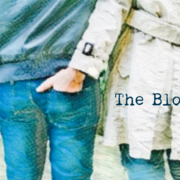Couples can be cruel to each other in many different ways. Couples betray each other in many different ways. Beyond the obvious betrayal of affairs, cruelty is is far more common that we think within our most valued relationship. Just about every couple practices this, at least occasionally.
This cruelty is physical, emotional , psychological, and spiritual. We knowingly and deliberately hurt our partner. Many times it can be what I think of as a micro-cruelty. This is something small, like hurtful sarcasm or the “forgotten” task or obligation. We do this perhaps out of selfishness, or more often, to make ourselves hurt less in a relationship that is already aching. And we do this to punish them for something they did or didn’t do, but most often, we do this instead of looking inside of ourselves to grow up.
Being in a committed relationship always makes for friction and problems. Your relationship is a crucible for experiencing friction and uncertainty. It is fuel for growth and transformation. The right question to ask is “Can I be who I strive to be and remain connected to this person who means the most to me?”
Your relationship is a crucible for experiencing friction and uncertainty.
The logical conclusion to this is that you must reduce the cruelty within the relationship, not eliminate the friction. The friction is your compass point signaling the need for growth and change. If you pay attention to it, it can lead you to make the changes needed for your own growth. This requires that you be brave enough to voice what is happening for you to your partner in a way that can be heard by them. That doesn’t mean you are responsible for their (possibly) emotional response.
When you feel stuck, and don’t know what to do to make it better, sometimes living with the uncertainty you feel is best. Things can appear quite black and white at the highest point of anger, confusion and mistrust. You do not see clearly, even though it feels like you do. Even with the most blatant trust breaches.
Stay in it while taking care of yourself. When you can, reach out to your partner from the best parts of yourself.
If you need help with this, contact me here. It may not be “the answer” you want, but know that the process of being in relationship with another is exactly that. There is no one answer. The relationship you are in is your opportunity for growth. How you choose to use it will determine the outcome.







